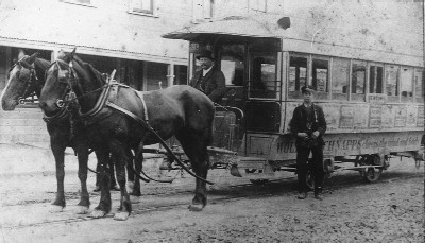 Infotech are reporting that a French firm has been identified as “preferred provider” for an integrated smart card solution across the Auckland region. If NZX listed local company Infratil misses out, it underlines the continuing struggle faced by local technology firms to secure major publicly funded contracts.
Infotech are reporting that a French firm has been identified as “preferred provider” for an integrated smart card solution across the Auckland region. If NZX listed local company Infratil misses out, it underlines the continuing struggle faced by local technology firms to secure major publicly funded contracts.
The Auckland Regional Transport Authority (ARTA) has been assessing tender responses for a much needed smartcard solution that would provide considerable relief for beleagured commuters in the City of Sails. But ARTA appears to have already flagged Thales as the most likely candidate in the project, which is reportedly valued at up to $100 million. At a time when everyone is concerned about preserving jobs, you would think that local contractors would receive favourable consideration. But – as in the past – local component is not a criteria for assessing public spending.
The stakes are high for the companies concerned. Wellington is considering extending to a region-wide solution and Christchurch is looking for a system that is compatible with whatever technology Auckland settles upon. The New Zealand implementations will also be excellent business case studies to support future export sales.
So perhaps the local technology is inferior? Not so. Last year Infratil, in a joint venture with ANZ bank, developed and launched the Snapper smartcard on its bus network across the Wellington region. Apart from some minor teething problems at the outset, the product has proven a success amongst Wellington’s commuters and usage continues to grow. The swipe cards can be recharged periodically and also used for small purchases at convenience store outlets.
Perhaps the chief criticism of Infratil’s solution involves concerns about monopolistic practices, because only Infratil buses currently have the Snapper technology installed. However that argument seems like a moot point given that ARTA have complete control over the scope of the solution for Auckland. Infratil will also draw upon the experience of it’s Australian project partner, infrastructure giant EDI Downer. So there is little doubt about the vendor’s ability to stay the course. Having eliminated the usual arguments – what is it that stops NZ public agencies from supporting local businesses? Outdated attitudes towards procurement of local technology should be confined to history.

Wouldn’t it be a breach of WTO rules to openly favour local companies?
Having asked that, if Infratil is as good as you say, then I do have to wonder what the big draw of Thales is. And yes, I completely agree with your final sentence.
It is not neccessary to apply favouritism. I’m simply calling for fair treatment. Where public funds are concerned, the best solution should be selected, irrespective of source.
I’d love to believe that trade rules guaranteed a level playing field for all, but the reality is that NZ public servants consistently demonstrate a bias against awarding major project contracts to local firms. The usual argument that is trotted out is that small local I.T. firms may not survive long enough to provide post-project support. Of course if local firms won more contracts, this argument evaporates. Catch-22.
Thinking back to when the “ANZAC frigate” contract was awarded, the Australian and NZ governments selected a supplier on the basis that there would be a local component involved in the construction. Similarly, China has a huge demand for commercial aircraft and rather than purchase aircraft directly from France, they have negotiated that Airbus set up a production line in China. So there are creative solutions that do not breach trade rules, but that can strengthen local industry.
The ANZAC frigates predate the WTO, don’t they?
But I wholeheartedly agree: Kiwi Tech won’t get a chance to grow unless it gets support.
Speaking of Airbus and China, I think there’s a lot NZ could learn from China’s approach- adjusted for scale, of course. Though I’m not sure that deal will survive the politics. Sarkozy is no longer popular here, and Airbus is seen (wrongly) as a French company.
Perhaps before they make a final decision they should read this article:
http://www.railwaygazette.com/news_view/article/2009/01/9219/ov_chipkaart_roll_out_creeps_forward.html
It hardly inspires confidence in the company they are said to be favouring for the contract.